Activism
/
August 24, 2024
The actions and arrests during the Democratic National Convention by the CPD have called into question whether the First Amendment rights of pro-Palestine demonstrators were protected.
Chicago Police in riot gear outside the Israeli Consulate during the Democratic National Convention in Chicago.
(Emily Elconin / Getty)
On the second night of the Democratic National Convention, Chicago Police Department (CPD) Superintendent Larry Snelling stood at the center of a throng of at least 50 officers, many in blue riot helmets and with wooden batons strapped to their waists. “Naysayers will tell you that we couldn’t do this and couldn’t do it properly. That we were not going to make it through.” he said, turning to look into the eyes of his stone-faced officers. “You guys performed the way you were trained to perform.… To protect this city and protect these people. Because you stepped up, we protected this city tonight.”
Earlier in the evening, as many as 400 police officers descended upon approximately 150 demonstrators gathered in front of the Israeli Consulate, kettling the crowd between one block and arresting 59 individuals—including four journalists.
After Snelling’s pep talk, officers congratulated themselves on a job well done, shaking hands and clapping one another on the shoulders. Down the block, a dozen arrested demonstrators were held upright and handcuffed with cable ties just beside a paddywagon, where they had been waiting for over an hour and a half.
“The City of Chicago has just displayed some of the best policing in America,” Mayor Brandon Johnson declared at a press conference Friday morning. The City mobilized 2,500 CPD officers and an additional 500 officers from departments across Illinois and in Milwaukee for the DNC. “If the 1968 convention went down in history as the example of police brutality, then the 2024 convention will go down as the example of constitutional policing.” Yet demonstrators and advocates have called into question the use of force during arrests, and whether the First Amendment rights of the pro-Palestine protesters were protected.
The National Lawyers Guild reported 76 arrests throughout the week of the DNC. On Monday, after a handful of demonstrators separated from the March on the DNC rally and temporarily breached a security fence outside the United Center, where the DNC is being held, CPD issued a mass arrest order, arresting 13. At least one arrested individual was questioned by Secret Service agents while in holding. According to the lawyer’s guild, another was held for over 40 hours, and four were hospitalized—two as a result of police abuse. One person’s joints swelled after being shackled to a wall by their arms and legs. (The department already has a long documented history of police violence and misconduct). Inside the convention, there was a different tone. “The word ‘freedom’ is seemingly on the lips of every attendee and speaker,” said ABC News.
Tuesday evening’s action in front of the Israeli Consulate was organized by Behind Enemy Lines, an anti-imperialist militant group that called on demonstrators to “make it great like ’68,” referring to the protests the last time the DNC was held in Chicago, when demonstrators were brutally repressed for protesting the Vietnam War. This time, organizers urged demonstrators to “shut down the DNC for Gaza.” The CPD took the messaging as a sign that the demonstrators were planning on committing acts of violence and, as Snelling declared in a press conference the following day, met them with an “overwhelming” show of force. A CPD van with two National Guard members in the front idled down an adjacent block.
Current Issue
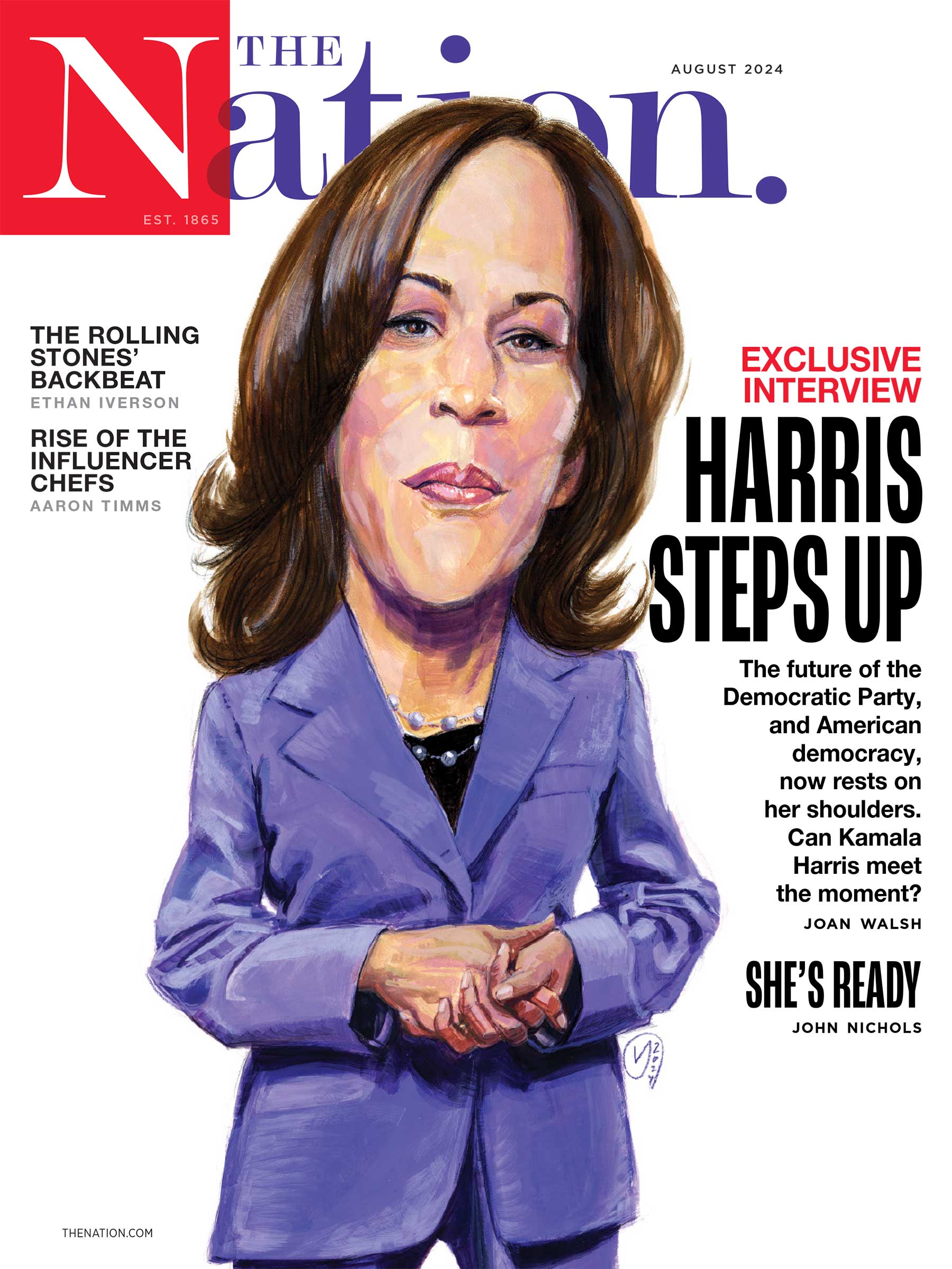
“I saw no evidence that anyone committed an act of violence on Tuesday night—other than CPD,” said Benjamin Meyer, an attorney with NLG. “I saw reports that people had been thrown to the ground and other other acts of violence committed by the police.”
“People were brutalized,” one individual who was arrested, who wished to remain anonymous given ongoing legal proceedings, told me. They added that some of those arrested weren’t in the crowd that was kettled, but were cornered by officers on a sidewalk on the edge of the police line and arrested.
The CPD gave demonstrators multiple dispersal orders—but no feasible, safe way to disperse amid contradictory directives. “It was terrifying,” one protester who wished to remain anonymous said. “They told us we had to leave, but we had nowhere to go.” Officers with bike barricades flanked the crowd at all sides, and in moments where the lines of police and the crowd collided, made multiple aggressive arrests.
The turnout was small—even the media outnumbered the protesters. One officer repeatedly beckoned a demonstrator in bloc, all black clothing, to get closer. “Why?” He asked, taking a step towards the police line. Three officers immediately grabbed him as others pressed their batons down on the extended arms of other demonstrators who tried to pull him back to safety. The demonstrator was quickly enveloped, pushed to the ground, and detained. When one demonstrator was grabbed from the line, seemingly at random, officers swarmed in and piled onto them with batons before a new line of officers moved in front. The only thing visible through the wall of police was a baton in the air as it descended onto the demonstrator on the ground.
During standoffs with police, demonstrators shouted, “The whole world is watching,” a chant popularized during the 1968 protests when police beat demonstrators on broadcast television. Some of those arrested have been banned from areas extending beyond the convention and other protest locations through Sunday. “We feel strongly that this is a violation of protesters’ First Amendment rights,” Meyer said.
It wasn’t only the pro-Palestinian demonstrators that the CPD targeted. When officers directed the crowd to disperse in a direction that was blocked off, multiple reporters were stuck in the crowd and received bruises from police batons. (I too was shoved by a baton back into the crowd.)
The journalists arrested—Sinna Nasseri, Olga Fedorova, Sylvie Evans, and Josh Pacheco—were charged with disorderly conduct. Pacheco, an independent photojournalist, had their press credentials forcefully removed from them by the assistant director of CPD news affairs, Tom Ahern. As she was being arrested, Fedorova wasn’t afraid but frustrated that she couldn’t work and document the rest of the evening. “I am disappointed that the City of Chicago chose to sweep the First Amendment under the rug with its heavy-handed tactics against working journalists,” Fedorova told me.
Nasseri, a photographer on assignment for Zeit magazine, repeatedly told the officers detaining him that he was a member of the press. “They didn’t seem to care,” he said. There were multiple moments where he could have been released or his charge could’ve been dropped, he said, but it seemed to him that someone “higher up” in the CPD wouldn’t allow it. He was also worried about his two professional cameras being taken into custody, as they had sensitive material on them he didn’t want the police to have access to.
“Cops arresting press doesn’t just prevent them from being able to file and upload footage and do their jobs, but it materially impacts the extent we’re able to document police violence and misconduct that runs rampant when cops are directed to surge into a crowd,” said Talia Jane, an independent reporter from New York who covers protests. “Arresting press chills the First Amendment freedoms of people to peaceably assemble.”
“When you cuff us, you cuff the public’s window to the truth,” Jane said.
Popular
“swipe left below to view more authors”Swipe →
At an unpermitted Coalition for Justice for Palestine march on Wednesday, officers briefly detained a hijabi woman waving a keffiyeh atop the new Damen Green Line train platform and a Palestinian protester named Ali waving a Palestinian flag on the Ashland platform. Both times, the crowd paused the march and chanted, “Let them go!” After pressure from the crowd as well as the intervention of protest marshals, individuals in yellow vests designated to keep the crowd safe, the officers released both demonstrators.
Shortly after 1 am on Thursday, a demonstration near what demonstrators believed to be the hotel Kamala Harris was staying at similarly resulted in no arrests, but revealed another troubling pattern of unclear directives. Officers gave three dispersal orders in the span of less than four minutes after around 50 demonstrators made noise with pots and pans, air horns, and chants of “Killer Kamala, you’re a liar, you don’t want a ceasefire!” When a demonstrator complained about the first dispersal order, given over a megaphone and barely audible, the officer in charge indicated he would repeat it on a loudspeaker. When he did, the police counted that as the second warning. The third warning came swiftly after, announcing that all protesters would be subject to arrest.
Organizers officially called for the end of the demo, but a large contingent of officers and a CPD paddywagon followed the dwindling crowd for an hour down Michigan Avenue, making demonstrators feel as if they could not disperse safely. The last evening of the convention saw two more arrests: one in the streets of Union Park after the March on the DNC rally and another in the early hours of Friday, when demonstrators disrupted an afterparty at the Ramova Theatre.
With the DNC over and Kamala Harris officially the Democrats’ candidate for president, pro-Palestinian protesters refuse to stop demanding a ceasefire and a free Palestine, even in the face of police repression. Cook County has the largest population of Palestinians in the United States, and protesters have been mobilizing on the streets of Chicago every weekend since October, with no plans of stopping with the conclusion of the convention.
After witnessing the arrest outside the theater, Jenin Alharithi, a Palestinian organizer, faced the line of nearly 150 police officers and yelled, “You can arrest us, you can put us in chains, but you can never break the spirits of the Palestinian people.” All eyes are on not just on Chicago but also the ongoing Israeli genocide in Gaza. The whole world is watching.
Can we count on you?
In the coming election, the fate of our democracy and fundamental civil rights are on the ballot. The conservative architects of Project 2025 are scheming to institutionalize Donald Trump’s authoritarian vision across all levels of government if he should win.
We’ve already seen events that fill us with both dread and cautious optimism—throughout it all, The Nation has been a bulwark against misinformation and an advocate for bold, principled perspectives. Our dedicated writers have sat down with Kamala Harris and Bernie Sanders for interviews, unpacked the shallow right-wing populist appeals of J.D. Vance, and debated the pathway for a Democratic victory in November.
Stories like these and the one you just read are vital at this critical juncture in our country’s history. Now more than ever, we need clear-eyed and deeply reported independent journalism to make sense of the headlines and sort fact from fiction. Donate today and join our 160-year legacy of speaking truth to power and uplifting the voices of grassroots advocates.
Throughout 2024 and what is likely the defining election of our lifetimes, we need your support to continue publishing the insightful journalism you rely on.
Thank you,
The Editors of The Nation
More from The Nation

Even after their request to feature a Palestinian speaker at the DNC was rejected, delegates say they are staying and fighting.
Sarah Lazare and Jack Mirkinson
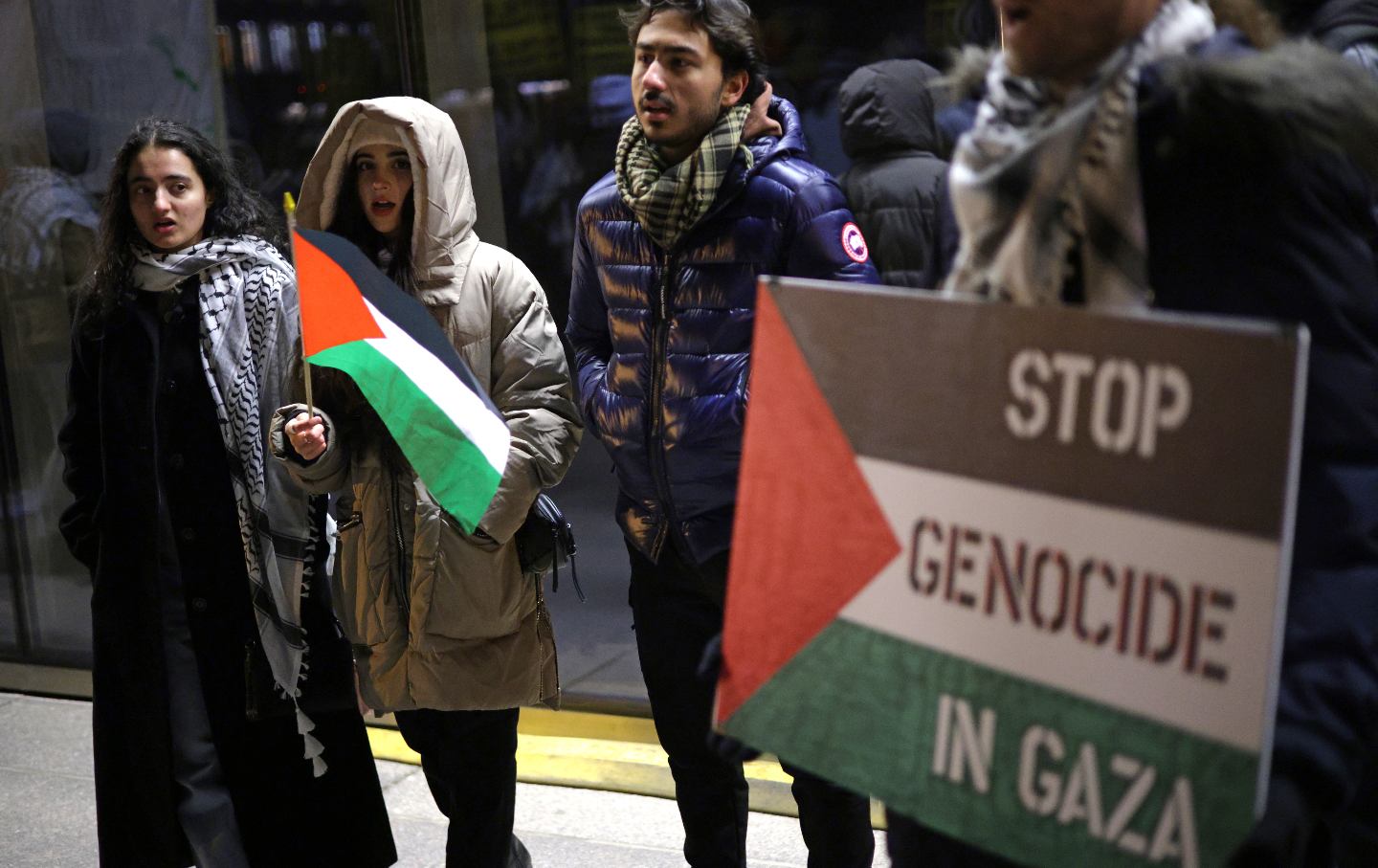
The program has been silent during the war on Gaza, while its parent institution continues to fund Israel’s ongoing assault.
StudentNation
/
Surina Venkat

“The reason we cry tears isn’t sadness anymore. It’s the feeling that we have no ability to get the most powerful country in the world to stop the bombs.”
Sarah Lazare
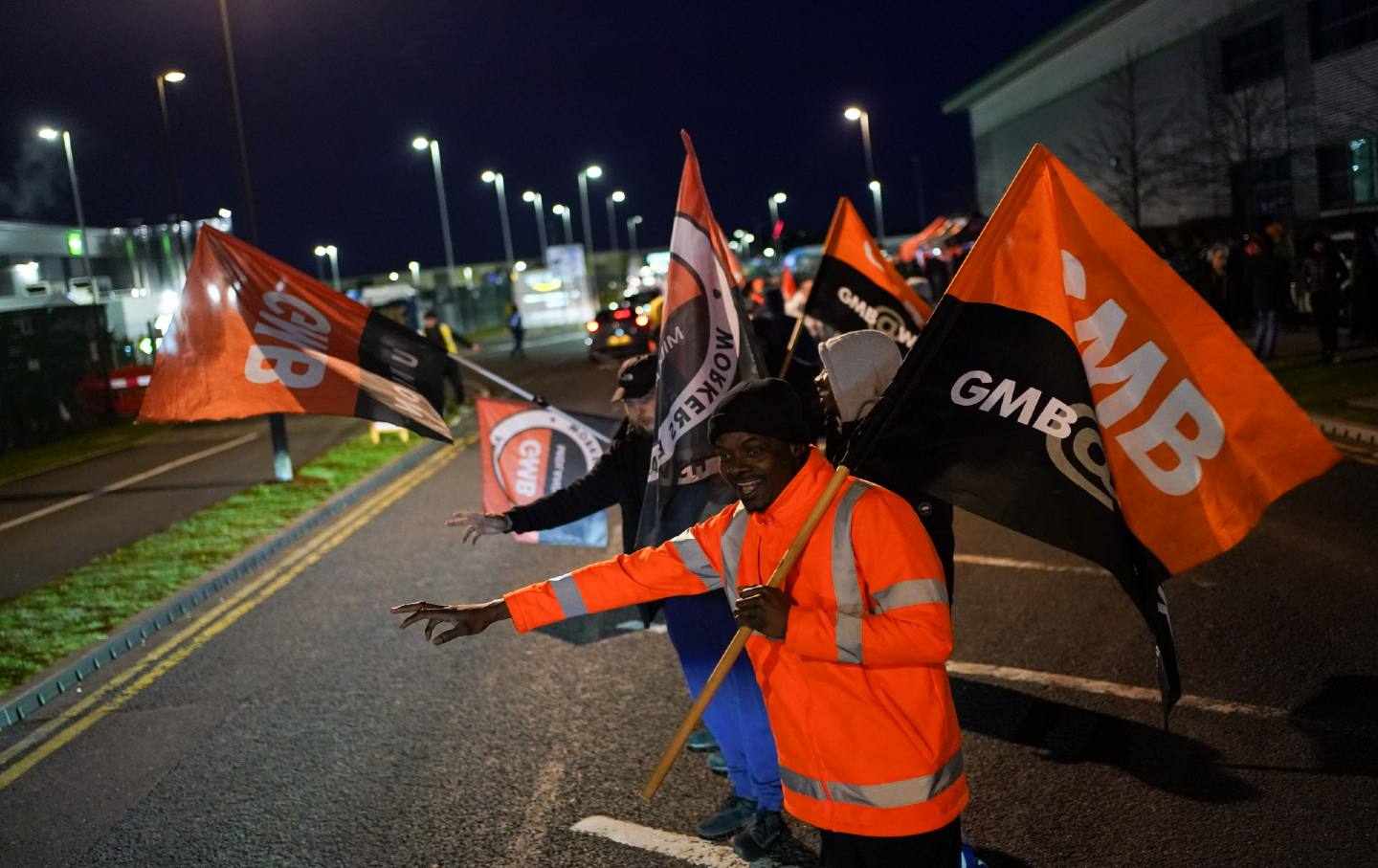
Recent skirmishes signal the growing confidence of Amazon workers, demonstrating that withdrawal of labor can force even the most powerful company in the world into concessions.
Jonathan Rosenblum
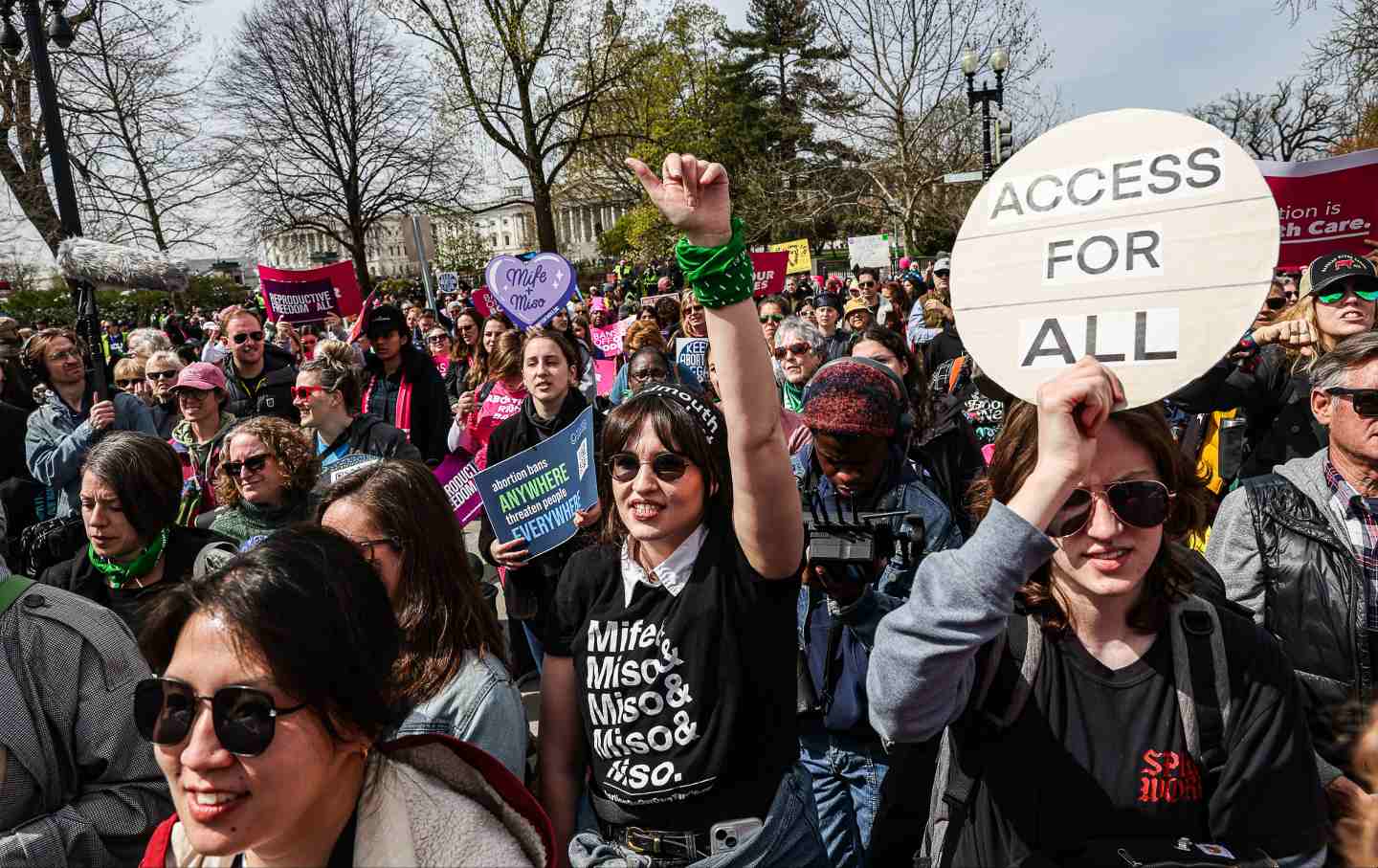
There is an alarming disconnect between the agenda of our most powerful organizations and the real needs of abortion seekers and providers on the ground.
Chelsea Williams-Diggs et. al
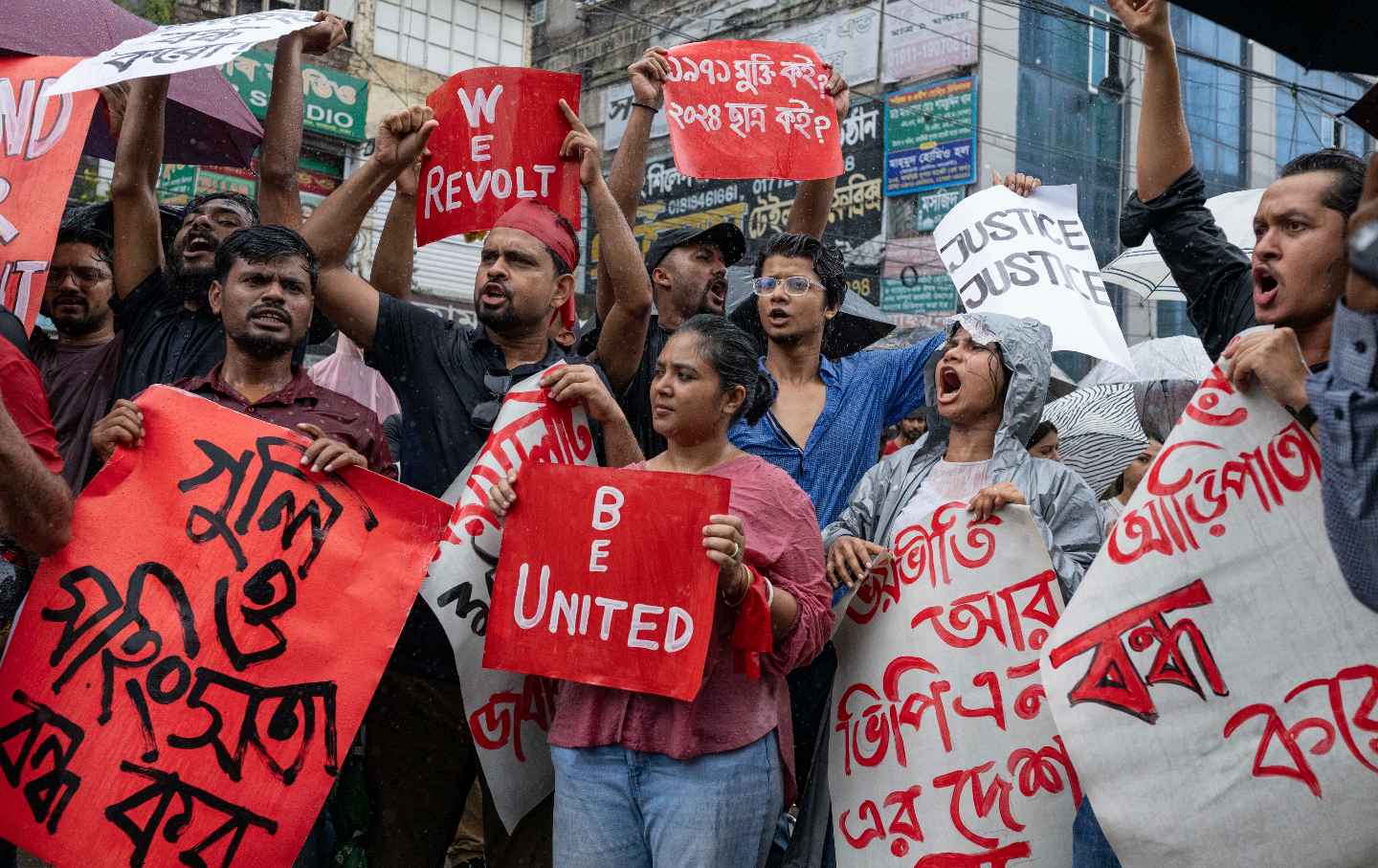
Over 200 have reportedly been killed and around 3,000 arrested during the Bangladesh student protests. As the movement continues, we spoke to young people in both the US and Dhaka…
StudentNation
/
Aina Marzia

